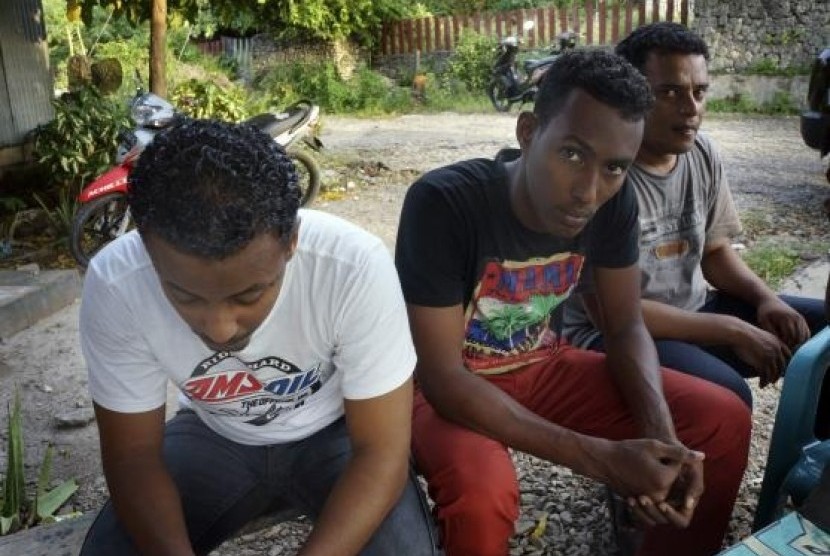REPUBLIKA.CO.ID, KUPANG - On New Year's day, 45 asylum seekers in a ramshackle wooden boat slid ashore on a small island off the Australian city of Darwin. Four others had been swept overboard that morning in rough seas and were believed dead.
The survivors, from Africa and the Middle East, stumbled onto the beach, thankful to find refuge on Australian soil. Or so they thought.
Within an hour, an Australian warship and other vessels arrived. Military personnel forced the asylum seekers back onto their wooden boat and towed it out to sea. Their destination: Indonesia.
Determining precisely what happened is difficult. But interviews with five of the passengers reconstructs a journey they say was marked by physical and verbal abuse.
Their accounts highlight just how far the newly elected conservative government of Prime Minister Tony Abbott is going to meet his election promise to "stop the boats" - a policy which involves towing vessels back to Indonesia, the main departure point for people-smuggling boats.
In a statement in response to questions on the accusations from the five asylum seekers, Immigration and Border Protection Minister Scott Morrison said he did not give "credibility to malicious and unfounded slurs".
"I know and trust that our Navy and Customs and Border Protection Service act in accordance with their training and lawful orders and would only use force where necessary," he said. The navy refers all questions about the operations to Morrison's office.
About 16,000 asylum seekers came on 220 boats to Australia in the first seven months of last year. The government has said that since mid-December, not a single boat has arrived.
In separate interviews, the five asylum seekers all said their vessel landed on the island - raising questions about what Canberra means when it says no boats have arrived. One of the men said he had carried a Global Positioning System (GPS) device that showed Darwin was roughly 35 km (22 miles) away.
They also gave multiple accounts of military personnel using plastic zip ties and pepper spray to restrain asylum seekers. Passengers were denied proper access to food, water, medical treatment and toilets, they added.
Tensions flared as soon as the Australian military personnel arrived on the island off Darwin, said Yousif Ibrahim Fasher, an English-speaker from Sudan's Darfur region. He said he told the Australians that four men had been swept overboard.
"We told them: 'that direction, we lost people.' We told them everything. They said: 'No, you go back to the boat'."
"We refused, and then they used force," Fasher said.
Men who resisted were picked up by their arms and legs and dumped in the boat, the asylum seekers said. Fasher said he saw military personnel kick and use zip ties to handcuff one man who tried to flee.
The boat, its engine crippled after men sabotaged the motor on arrival, was tethered to a navy speedboat and towed back to sea.


